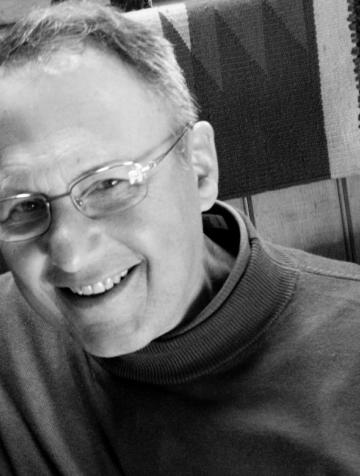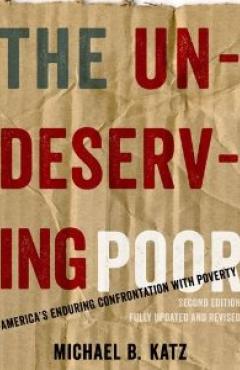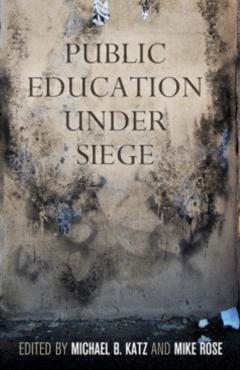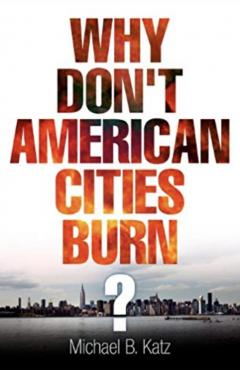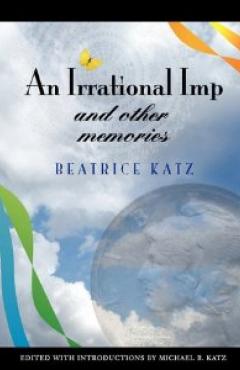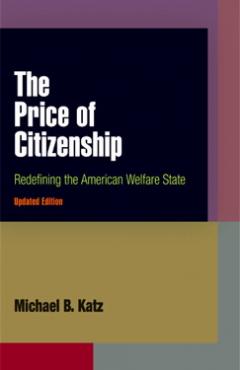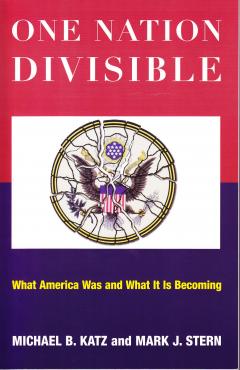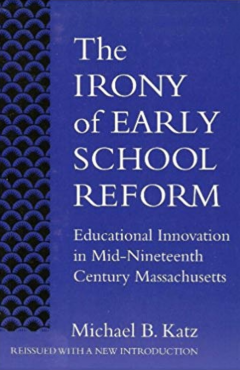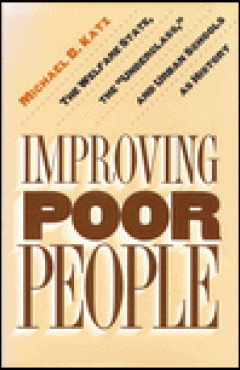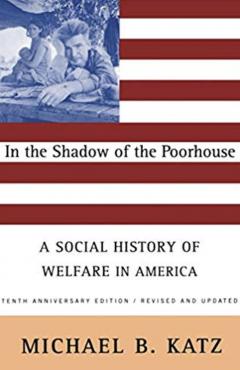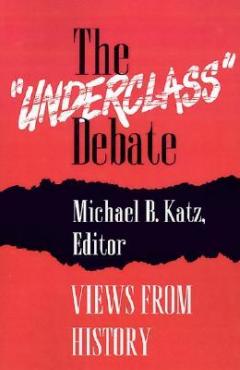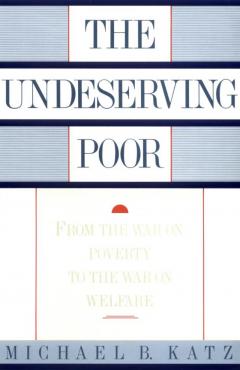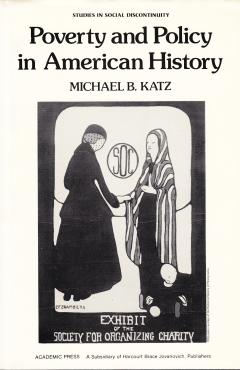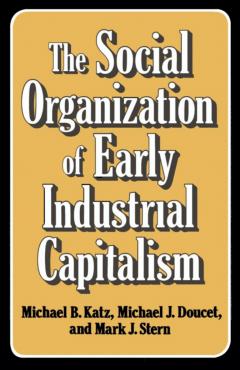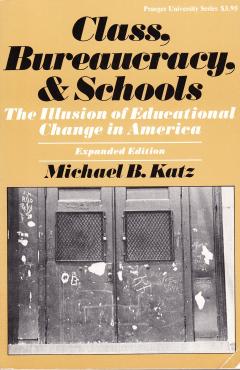Michael Katz was Walter H. Annenberg Professor of History and Research Associate in the Population Studies Center at the History Department. Educated at Harvard, he has been a Guggenheim Fellow and a resident fellow at the Institute for Advanced Study, the Shelby Cullom Davis Center for Historical Studies (Princeton), the Russell Sage Foundation, and the Woodrow Wilson International Center for Scholars; he also has held a fellowship from the Open Society Institute. He was a fellow of the National Academy of Education, National Academy of Social Insurance, the Society of American Historians, and a member-elect of the American Philosophical Society. In 1999, he received a Senior Scholar Award—a lifetime achievement award—from the Spencer Foundation. From 1989–1995, he served as archivist to the Social Science Research Council's Committee for Research on the Urban Underclass and in 1992 was a member of the Task Force to Reduce Welfare Dependency appointed by the Governor of Pennsylvania. From 1991–1995 and 2011–2012, he was Chair of the History Department at the University of Pennsylvania; from 1983-1996 he directed or co-directed the University’s undergraduate Urban Studies Program; in 1994, he founded the graduate certificate program in Urban Studies, which he co-directs. He is a past-president of the History of Education Society and of the Urban History Association. In 2007, he was given the Provost’s Award for Distinguished Graduate Student Teaching and Mentoring.
His work focused on three major areas: 1) the history of American education (The Irony of Early School Reform [1968, reprinted with a new introduction, 2001]; Class, Bureaucracy, and Schools: The Illusion of Educational Change in America [1971, expanded edition 1975]; Reconstructing American Education [1987]); 2) the history of urban social structure and family organization (The People of Hamilton, Canada West: Family and Class in a Mid-Nineteenth Century City [1975, winner Albert C. Corey Prize, American and Canadian Historical Associations]; The Social Organization of Early Industrial Capitalism [1981]); and with Mark J. Stern, One Nation Divisible: What America Was and What It Is Becoming (2006; paperback, 2008); and 3) the history of social welfare and poverty (Poverty and Policy in American History [1983]; In the Shadow of the Poorhouse: A Social History of Welfare in America [1986, expanded edition 1996]; The Undeserving Poor: From the War on Poverty to the War on Welfare [1990, a finalist for the American Sociological Association's Distinguished Book Award]; The "Underclass" Debate: Views from History [1993]; Improving Poor People: the Welfare State, the "Underclass," and Urban Schools as History [1995]); and The Price of Citizenship: Redefining the American Welfare State (Metropolitan/Holt, 2001; Owl Books, 2002; updated edition, University of Pennsylvania Press, 2008); and with Christoph Sachsse, he has edited The Mixed Economy of Social Welfare: England, Germany, and the United States from the 1870s to the 1930s (1996). With Thomas Sugrue, he edited W.E.B. Du Bois, Race, and the City: “The Philadelphia Negro” and Its Legacy (1998). His final book, Why Don’t American Cities Burn? (2012) was published by Penn Press.

